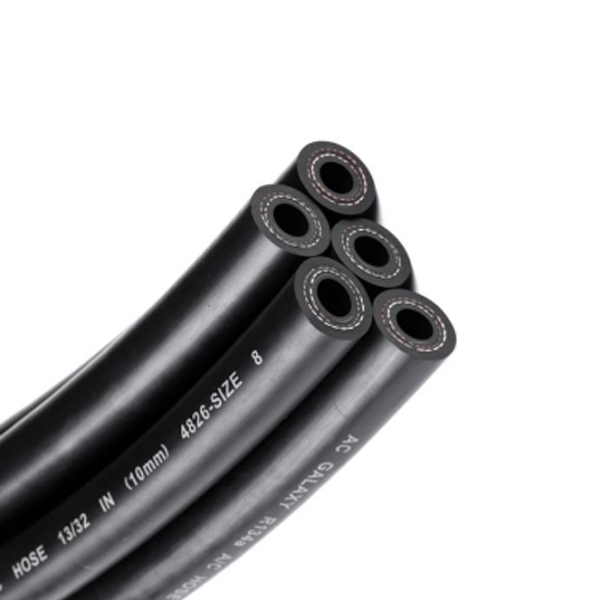Hydraulic Brake Line Systems for Trailer Safety and Performance Enhancement
Dec . 16, 2024 10:12 Back to list
Hydraulic Brake Line Systems for Trailer Safety and Performance Enhancement
Understanding Hydraulic Brake Lines for Trailers
Hydraulic brake systems are vital components in the safety and performance of trailers. Unlike traditional mechanical brakes, hydraulic brakes use fluid to transfer force from the brake pedal to the brake mechanism. This technology allows for smoother and more efficient braking, which is crucial for trailers that often carry heavy loads. In this article, we will explore the function, components, maintenance, and the importance of hydraulic brake lines for trailers.
The Function of Hydraulic Brake Lines
Hydraulic brake lines serve as the conduits that carry brake fluid from the master cylinder to the wheel cylinders or brake calipers. When the driver presses the brake pedal, the master cylinder generates pressure in the brake fluid, which is transmitted through the hydraulic lines. This pressure forces the brake pads against the rotors or pushes the brake shoes against the drums, ultimately slowing down or stopping the trailer.
The efficiency of this system relies heavily on the integrity of the hydraulic brake lines. Any leaks, blockages, or damage in the lines can lead to brake failure, which poses significant safety risks, especially when towing heavy loads.
Key Components of the Hydraulic Brake System
1. Master Cylinder This is the heart of the hydraulic brake system. It converts the mechanical force of the brake pedal into hydraulic pressure.
2. Brake Lines These are the tubes or hoses that transport brake fluid under pressure. They are usually made of durable materials like rubber or steel braided lines.
3. Wheel Cylinders/Brake Calipers Located at each wheel, these components receive the hydraulic pressure and activate the braking mechanism.
4. Brake Fluid The hydraulic fluid is designed to withstand high temperatures and is essential for the efficient functioning of the braking system.
hydraulic brake lines for trailers

Importance of Maintenance
Regular maintenance of hydraulic brake lines is crucial for ensuring safety on the road. Here are some key points to consider
- Inspect for Leaks Regularly check the brake lines for any signs of leakage. Even a small leak can lead to a significant loss of braking power.
- Check for Cracks and Wear Over time, brake lines can become brittle or corroded. Inspecting them for cracks or worn areas can prevent brake failure.
- Flush the System Brake fluid can absorb moisture over time, which diminishes its effectiveness. Flushing the brake system and replacing the fluid as recommended by the manufacturer can enhance performance.
- Bleed the Brakes Air trapped in the brake lines can create spongy brakes. Regular bleeding of the brakes helps maintain optimal pressure and responsiveness.
Choosing the Right Brake Lines
When replacing hydraulic brake lines, it is essential to choose high-quality products that meet industry standards. Look for hoses that are resistant to abrasion, corrosion, and extreme temperatures. Rubber hoses are common, but steel braided lines offer better durability and performance under heavy loads.
Additionally, ensure that the lines fit your specific trailer model. Mismatched components can result in inadequate braking power and can compromise safety.
Conclusion
Hydraulic brake lines play an essential role in the braking performance of trailers. Understanding their function and importance can lead to better maintenance practices and enhance overall safety on the road. Regular inspections and timely replacements of brake components can prevent potential failures and ensure that your trailer stops effectively, regardless of the load. As trailers are often used for transporting valuable cargo, investing time and resources into maintaining a reliable braking system is not just a matter of safety; it's a responsibility every trailer owner must uphold.
Latest news
-
Air Conditioning Charging Hose: Durable AC Recharge Kits
NewsAug.22,2025
-
Premium 4890 AC Hose | Durable & Perfect Fit Replacement
NewsAug.21,2025
-
High-Quality AC Hose: Compressor to Evaporator for Car
NewsAug.19,2025
-
Glass Storage Jar with Acacia Vacuum Vented Cover - HEBEI KEMO|Thermal Resistance, Food-Grade Safety, Eco-Friendly
NewsAug.18,2025
-
Glass Storage Jar with Acacia Lid - Hebei Kemao | Heat-Resistant, Eco-Friendly
NewsAug.18,2025
-
Glass Storage Jar with Acacia Vacuum Vented Cover - HEBEI KEMO|Thermal Resistance,Eco-Friendly Storage
NewsAug.18,2025
